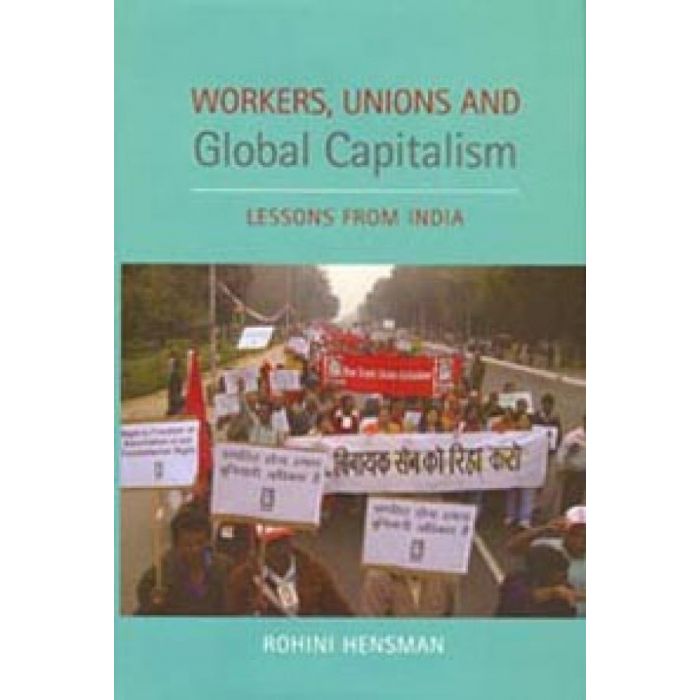Workers, Unions And Global Capitalism
While it is easy to blame globalization for shrinking job opportunities, dangerous declines in labour standards and a host of related discontents, the ‘flattening’ of the world has also created unprecedented opportunities for worker organization. By expanding employment in developing countries, especially for women, globalization has formed a basis for stronger workers’ rights, even in remote sites of production.Using India’s labour movement as a model, Rohini Hensman charts the successes and failures, strengths and weaknesses, of the struggle for workers’ rights and organization in a rich and varied nation. As Indian products gain wider acceptance in global markets, the disparities in employment conditions and union rights between such regions as the European Union and India’s vast informal sector are exposed, raising the issue of globalization’s implications for labour.
Hensman’s study examines the unique pattern of ‘employees’ unionism’, which emerged in Bombay in the 1950s, before considering union responses to recent developments, especially the drive to form a national federation of independent unions. A key issue is how far unions can resist protectionist impulses and press for stronger global standards, along with the mechanisms to enforce them. After thoroughly unpacking this example, Hensman zooms out to trace the parameters of a global labour agenda, calling for a revival of trade unionism, the elimination of informal labour, and reductions in military spending to favour funding for comprehensive welfare and social security systems.

